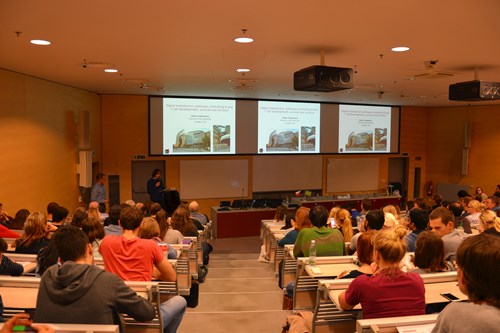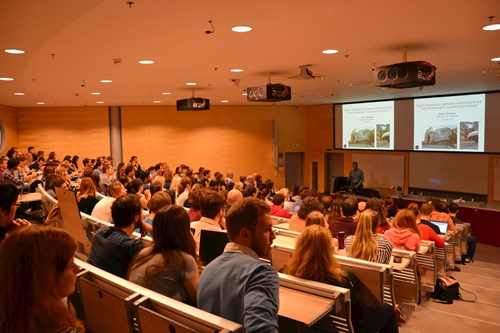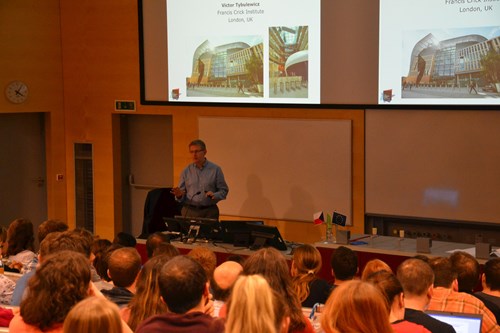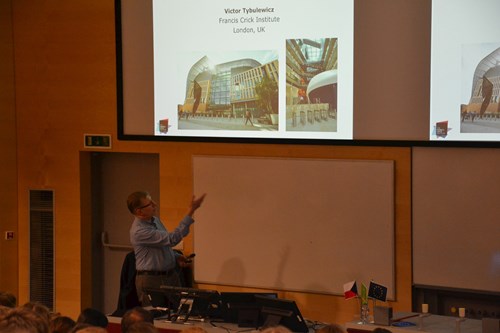Dr. Victor Tybulewicz
Francis Crick Institute, London, UK
-
My group is interested in signal transduction in B and T cells, from the antigen, chemokine and cytokine receptors, as well as integrins. Signals from these receptors play critical roles in B and T cell development, activation, migration, survival and death.
-
We are studying how signalling pathways control these processes, using mouse genetics, protein biochemistry, imaging, cell biology, and RNAi and CRISPR screens. Current research interests include pathways controlling B and T cell migration and adhesion, B cell survival, the biology of memory B cells and the function of long non-coding RNAs in lymphocyte biology.
-
Laboratory webpage: https://www.crick.ac.uk/research/a-z-researchers/researchers-t-u/victor-tybulewicz/projects/



